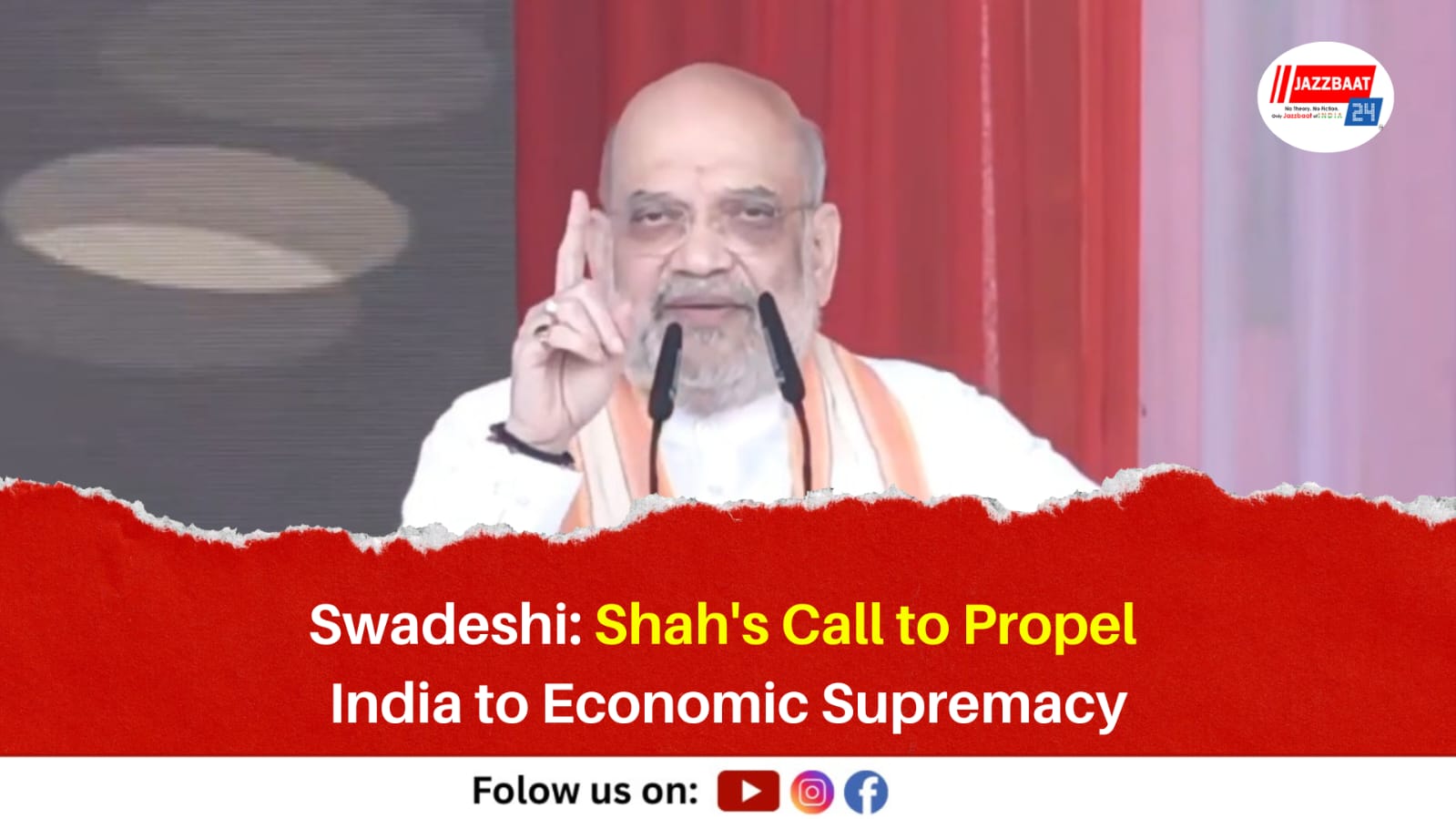In a spirited address on Sunday, Union Home Minister Amit Shah made an impassioned plea to Indians across the nation: embrace Swadeshi products as the cornerstone of India's economic ascent to global leadership.
Speaking at the inauguration of cooperative sector facilities in Maharashtra's Kopargaon, Shah didn't mince words about what he believes is the only path forward for India's economic ambitions. "If we want to become number one in the world, there is no other option than Swadeshi," he declared, urging every citizen to adopt indigenous products without alternatives.
Shah credited Prime Minister Narendra Modi's economic policies for India's remarkable climb from the 11th largest economy to the 4th position globally. "We are very close to reaching the third position," he noted, painting an optimistic picture of India's trajectory. But for Shah, the real prize securing the number one spot, hinges entirely on the nation's commitment to homegrown products.
The Home Minister's emphasis on the cooperative sector wasn't merely ceremonial. He described it as a "crucial lifeline" for India's rural economy, positioning it as a vital engine of grassroots economic growth under Modi's leadership. This focus aligns with the government's broader strategy to strengthen rural India while reducing dependence on foreign goods.
Shah's speech extended beyond economics to environmental stewardship, as he highlighted the 'Ek Ped Maa Ke Naam' campaign. The initiative encourages every Indian to plant two trees one for Mother Earth and another in honor of their own mother. According to Shah, this simple act could significantly combat climate change and global warming, weaving environmental consciousness into the fabric of national economic policy.
The Home Minister's visit to Maharashtra wasn't just about grand visions. He addressed immediate concerns, assuring farmers affected by recent crop-damaging rains that the government stands ready to help. His announcement that NDA MLAs had donated a month's salary to the relief fund demonstrated a tangible commitment beyond rhetoric.
Shah's call for Swadeshi raises important questions about India's economic strategy. While promoting indigenous products can strengthen local industries and create jobs, critics might argue that in an interconnected global economy, complete self-reliance could limit access to advanced technologies and competitive pricing.
Yet for Shah and the government, the message is clear: India's path to becoming the world's leading economy doesn't run through global supply chains, it runs through Indian factories, farms, and cooperatives. Whether this vision of economic nationalism can coexist with the realities of global trade remains to be seen, but one thing is certain: the government is betting big on Made in India.
As India stands on the cusp of becoming the world's third-largest economy, Shah's message serves as both a celebration of progress and a roadmap for the future. The question now is whether India's 1.4 billion citizens will answer his call to make Swadeshi not just a slogan, but a way of life.

